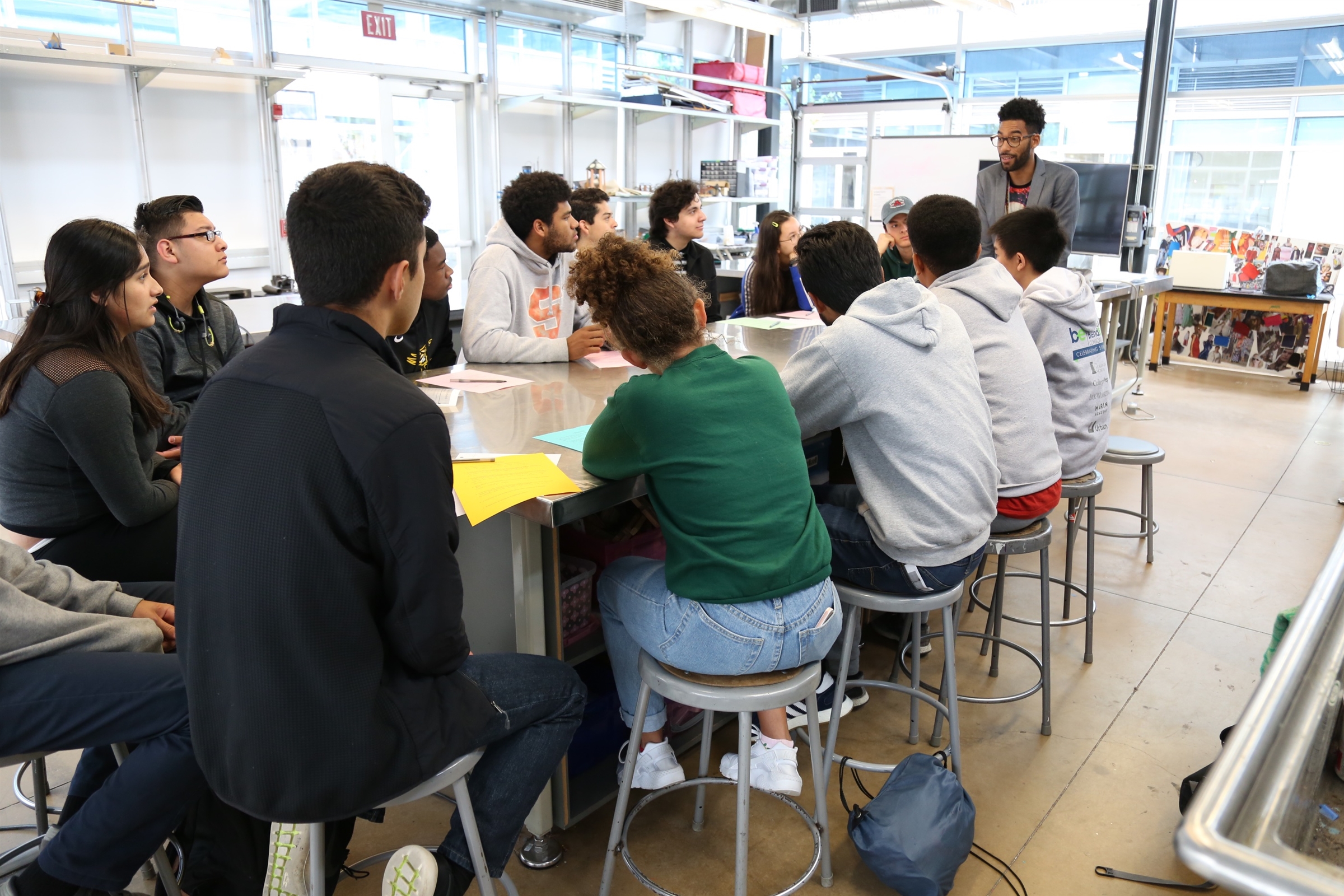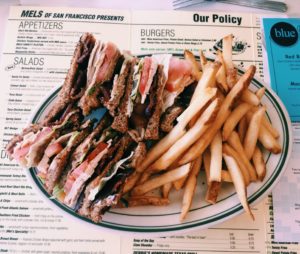
On April 26th, Lick-Wilmerding held its annual day-long conference, Walk with a Purpose. The stated goal of the conference is to allow “students to explore different social justice topics and the role that each of us can play in combating systems of oppression.” This year its overarching theme was to promote bridge-building between intersectional ties of oppressed groups.
After a day of workshops and following an assembly with keynote speaker, comedian Jenny Yang, students and faculty gathered in self-chosen affinity groups. This year, during one of the workshop events and in one of the White affinity group meetings two Lick faculty members used a racial epithet, the n-word. The verbal articulation of the word stunned and offended. While in each case the epithet was spoken as part of the faculty member’s presentation about the devastating impact of using racial epithets and slurs on those they target, their verbalization of the epithet was nevertheless painful.
Controversy over the two incidents plunged the school into a debate about if there is ever any appropriate context to use such an epithet.
As word got out among the school, many students and faculty expressed sadness as well as outrage at the use of the n-word. In response to the issue, the administration began the slow process of developing an adequate response. During grade-level meetings, many students also voiced their concerns directly to several administration faculty members. Following the meetings, the administration held an all school assembly on May 11th. Part of Lick Head of School Eric Temple’s opening statement for that meeting encapsulated the discontent among students and faculty alike: simply, “This is a conversation that is long overdue.”
A common thread throughout the community discussions centered on the use of the offensive language even in direct quotation or another academic context.
When asked about general guidelines, René Villicaña, a History teacher at Lick, offered up a sound explanation – when it comes to using epithets: “In academic and public settings, generally speaking… no. Especially if the individual who would be using/quoting the text is in a position of systemic power and privilege.”
Noah Brown ’19, who was at the affinity group where the epithet was used, echoed a similar sentiment. “I personally don’t see the need of ever using that word,” he said. “It’s pretty clear if you just say,‘the N-Word’.” Victor Johnson ’18 offered equally prescient advice for setting guidelines: “It’s too much of a slippery slope to allow any real leeway with the word.” In many ways, these student and faculty sentiments reflect the larger feeling on campus: there’s no reason to use an epithet, especially when it can often be easily recognized by using an abbreviation or other association.
However, covering such a complex topic with blanket rules can prove problematic, and in his response, Villicaña was careful to clarify the various intricacies surrounding usage of a racial epithet. Simply, “language is complicated: words/phrases have histories, their meanings are not static, and whether or not to use them depends on so many vital factors like setting, audience, intent, intersection of identities of those present…just to name a few.” He also went on to highlight that, “it’s more important to think about the nuances and ambiguities of using such language vs. categorical rules that seem to give order to what is fundamentally a disordered reality.”
With that said, regardless of the caveats that come when trying to dictate the proper usage of an epithet, the pain people felt from its usage was very real. At the May 11th assembly, Randy Barnett, Lick’s Assistant Head of School, offered a summation of the situation during his apology for his use of the word, “I understand that incidents like this trigger the cumulative pain and anger of people of color in a white dominated culture, pain that I can never fully know as a white person…. This experience reminds us that some people do not feel safe here.” In multiple ways, Barnett highlighted what many white students at Lick are grappling with; despite Barnett’s intentions, the fact that he quoted the epithet spoke to the issue that “As a white person I am insulated from the violence of the word.”
Along the same vein, a large portion of the conversation in the days following Walk With A Purpose focused on the purpose White Affinity groups should serve, as opposed to the problematic position they are in right now. With regards to the current state of white affinity groups, Brown was blunt: “I find them to be pretty useless.”
A cornerstone of a white affinity space should be to prepare students to engage in uncomfortable discussions about race, but in this case, their inability to prepare students was evident in the use of the epithet and in the delayed student and teacher response to the issue.
The situation that occurred at Walk with a Purpose demonstrates how complicated it is to be critical of those in power: Brown noted, “It’s obviously a tough thing to call out a teacher— someone you have experience with and who you do respect — just a little bit less now. It’s kind of like a power dynamic.” What is especially hard in these instances where people misused epithets is that they were faculty members: people who students look up to as role models for proper behavior and etiquette around difficult topics like race. Johnson mirrored this perspective: “It disorients you when these are the people that preach the “head, heart, and hands” mission that we live by, and that want to be inclusive, knowing that these terms are used divisively.”
Reflective of the students’ sentiments, in his apology, Lick Math Teacher Steve Simon acknowledged the issue and offered a framework for coming to terms with this difficult situation. “For some of you, learning that I used that word was particularly hurtful, because it was not an isolated incident. You struggle every day that you are here, to be respected and known, and to feel that you are valued and belong, and I let you down, and I am particularly sorry for that… I know that trust will have to be rebuilt and it will take time, and I hope that I have the opportunity to do that.”
Despite the pain and confusion that has surfaced from the unintentionally hurtful usage of epithets, at least one thing is clear; our community has come together and affirmed their support for racial equality. Moving on, the hope becomes that we can use situations like this as a jumping-off point for further productive conversations about race at Lick.






